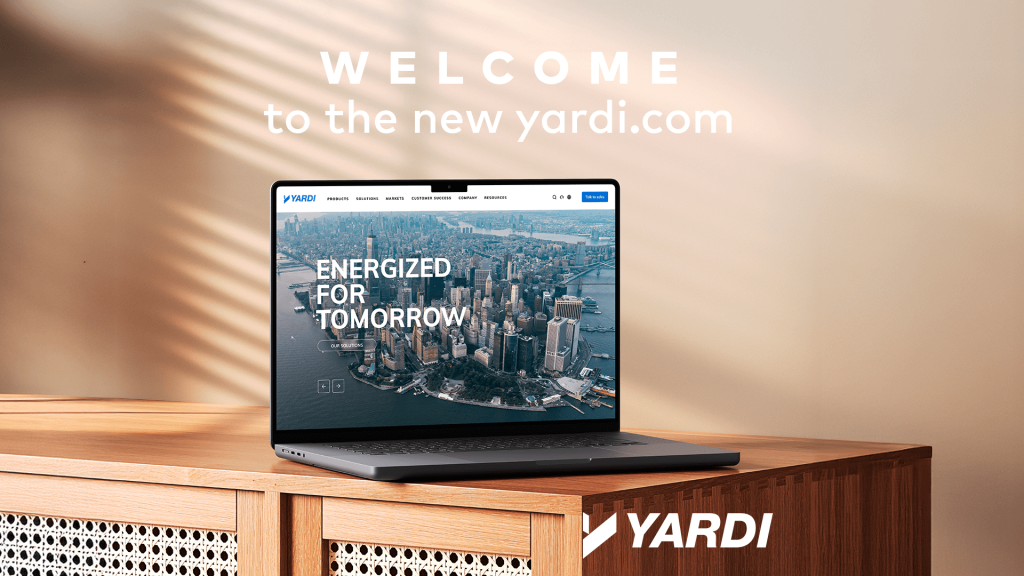By Mike Sederholm on April 25, 2025 in News

April is Fair Housing Month in the United States. Groups across the country are making time to commemorate the Fair Housing Act. It’s the perfect time to consider technology’s role in promoting fair housing practices for all applicants and residents.
Core fair housing practices
Fair and consistent leasing practices begin with marketing available residences. Property owners and leasing agencies must be mindful of where they advertise vacant units. There cannot be a perception of targeting specific groups or excluding others.
RentCafe, an online portal solution from Yardi, keeps marketing fair and consistent. It advertises available units via the web and on a mobile app. There is no reason why anyone within the community would be excluded or targeted.
Let renters choose what’s best for them
The most basic way to make sure prospective renters have freedom to consider a property for residence is to leave the decision up to them. Housing specialists should not be part of the process of deciding what neighborhood would be best for a prospective renter, lest you expose your organization to the perception of steering applicants to properties.
Reducing use of paper forms and in-person meetings with applicants, residents and participants is a smart strategy for affordable housing providers and PHAs to minimize exposure to fair housing claims.
That’s because digital apps that qualify households for assistance eliminate the possibility that housing specialists will unlawfully influence the submission of an application or steer applicants to certain properties.
Here are three ways to leverage digital workflows to help promote fair housing practices.
1. Stay nonpartial
While it is natural for employees to want to help customers, a hands-off approach is often better for everyone.
Fair housing laws ensure that households can consider and seek residency wherever they like. Neighborhoods or city districts cannot lawfully be unwelcoming, inaccessible or unavailable to households because of specific demographic criteria. Housing specialists should not be part of the process of deciding what neighborhood would be best for a prospective renter, lest you expose your organization to the perception that you steer applicants to properties.
Publicizing available units on the web ensures everyone has equal access to your list of properties and vacant units. There’s no need for your team to tell applicants about one property or the other. Your applicants can see all vacancies online without assistance.
2. Eliminate the language barrier
Housing providers must accommodate the needs of prospective and current residents according to fair housing laws. Ensuring access to housing and services in multiple languages is one of the basic mandates of reasonable accommodations.
Housing providers often hire staff who speak languages found in their communities. They also pay to translate paper forms. Such strategies are risky because key phrases can be misunderstood and mistranslated without a background in affordable housing compliance. Translation services are expensive, and the costs can recur every time a form changes.
Digitizing compliance leverages freely available translation technology that enables affordable housing applications, websites and service portals to appear in the languages spoken across the community.
Automating translation eliminates fair housing risks. You won’t have to presume that your team is not misunderstanding applicants and residents. There’s no chance that applicants will be steered to a particular property (whether on purpose or not) based on language. And you’ll promote equal access to the housing, regardless of language.
3. Don’t coach
It’s no secret that qualifying for an affordable housing unit requires a lot of documentation. The process has historically required stacks of forms to fill out, personal finance forms to submit and many hours spent verifying submitted information is accurate and complete.
It’s enough work to make a housing specialist feel like they should advise an applicant whether or not they should even go through the process. After all, if a housing specialist knows an applicant may not qualify, or if they think there is a different unit that might suit an applicant better, wouldn’t it be helpful to steer them away from certain units?
Fair housing laws are designed to stop that type of coaching and steering. That’s because it’s everyone’s right to apply for a unit they desire. It shouldn’t be up to a third party’s point of view.
RentCafe Affordable Housing and Yardi Verification Services simplify the application and verification processes by digitizing compliance and taking personal perceptions out of the picture.
Compliance specialists working with digital access to files have no need to meet with applicants. There is no chance for them to make personal (positive or negative) connections with applicants. The data submitted by the applicant is the only thing that matters in determining eligibility for housing assistance, which emphasizes transparency, consistency and fairness.
In-person and verbal conversations are great, but when fair housing is on the line, it’s better to keep things impersonal, online and consistent. You’ll keep your organization protected with digital records that document everything submitted, all communication and every housing decision stored with a time and date stamp.
Learn to promote fair housing practices
Want to learn more about Yardi affordable housing solutions? We’ll help keep your team and properties in compliance and promote fair housing. Visit our website or call (800) 866-1144.


